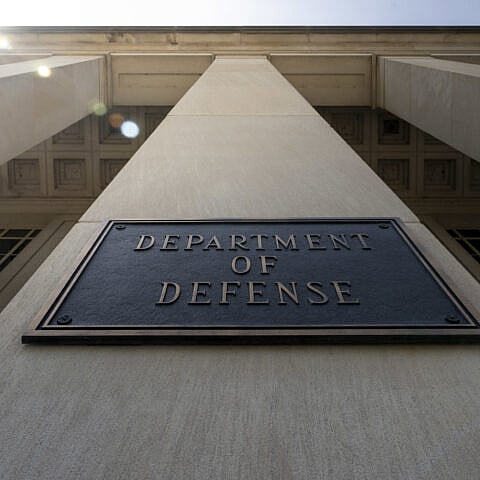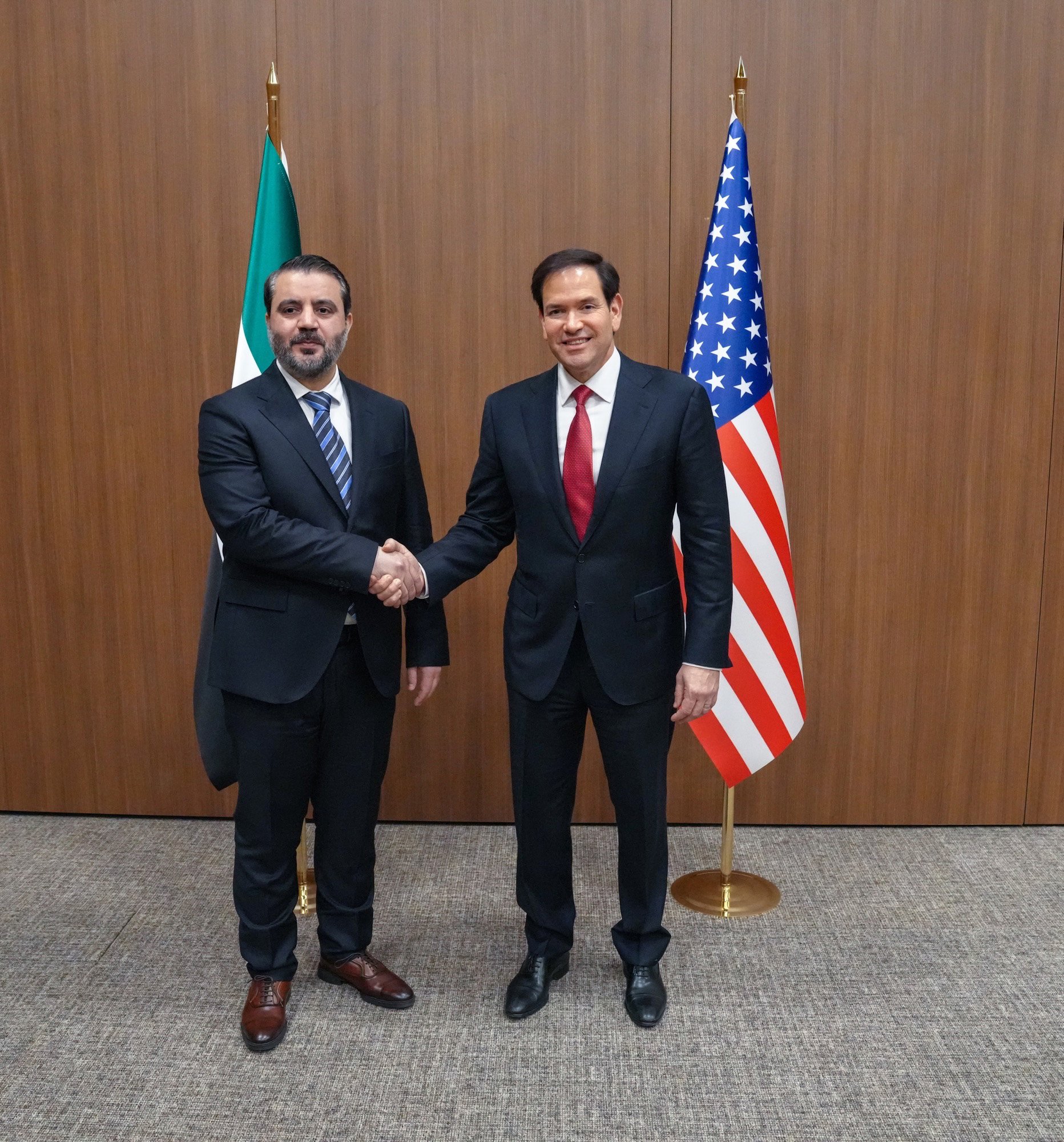by Clarice Feldman
In less than two weeks, Trump has shown that his impact on American history has centered on his persuasive powers and using them to execute leadership.
That’s Selena Zito’s take, and I fully agree with her.
There is an old wisdom in political science that real presidential power, whether domestic or international, is the power of persuasion. In less than two weeks, Trump has shown that his impact on American history has centered on his persuasive powers and using them to execute leadership.
While elites struggle to understand the appeal of Trump and conservative populism, what they miss, what they have always missed, is the nuance of what “Make America Great Again” meant to voters. The media saw it as a vulgar attempt at nationalism, often brazenly calling it so. But it never was. For most Trump supporters, it meant the connective tissue not with him, but with each other, that they were all part of something bigger than self.
To date, President Franklin Roosevelt has had the longest impact on American politics in our short history. Trump will exceed that, especially if he continues to have two-week stretches such as these.
So much has happened in the past two weeks to confirm her view that I cannot cover all of it -- especially all the successes in the economy, tariff negotiations, peace deals around the world, lowering the rate of inflation, closing the border, and deporting illegals, included. All of these are greatly consequential, but this week I concentrate on the amazing successes in Iran and the Supreme Court. I picked these to clarify what the legacy media distorts.
Bombing Iran’s Nuclear Facilities
Despite CNN and much of the legacy media misusing a leaked preliminary assessment (of “low confidence”) the bombing was of great value to both Israel and the United States.
Israel’s use of the F-35 was an absolute success for the U.S. for the following reasons:
1. Combat-Proven Validation -- Israeli F-35s successfully struck deep into Iranian territory without losses, proving the jet’s stealth and precision in real-world combat.
2. Global Surge in Demand -- The success triggered a wave of interest, with countries like Romania, Greece, and Germany accelerating purchases, boosting U.S. defense exports.
3. Massive Economic Benefit -- Lockheed Martin gains billions in new deals, creating thousands of American jobs and expanding the U.S. defense industrial base.
4. R&D and System Improvements -- Israeli combat experience helped identify and fix performance issues, saving the U.S. billions in research and development.
5. Strategic and Tactical Edge -- Insights from Israeli operations now inform U.S. Air Force tactics, improving readiness and increasing pilot survivability.
In short, this wasn’t just a success for Israel. It was also a major win for Lockheed Martin and the U.S. economy.
Catherine Herridge posts the Pentagon Assessment, which should put paid to media liars:
Pentagon Assessment Operation Midnight Hammer : Planned Over 15 Years #Iran
Chairman Joint Chiefs GEN Dan Caine @thejointstaff
Strike at Fordow exploited two ventilation shafts
Days before, Iran tried to cover shafts with concrete cap
First US weapon removed concrete cap
Weapons 2, 3, 4, and 5 entered main shaft, traveling at 1000 feet per second to Iran’s underground mission center
Weapon 6 “flex” capability
The “kill” mechanism was the combination of blast and overpressure on the target
Officer from DTRA (Defense Threat Reduction Agency) began the mission 15 years ago when the underground target was identified and the officer recognized the US did not have a weapon to counter it.
Years of highly classified (likely special access program) development and testing followed.
Caine said he talked with the two DTRA officers who “lived this single target” for years.
Post mission, they described hearts “ filled with pride to be a part of this.”
@SecDef HEGSETH
Leaked DIA record was preliminary assessment and low confidence. He accused some media of amplifying the report to create doubt, search for scandal, division and to “cheer against Trump”
NOTE: In the hierarchy of intel reports, a preliminary assessment with low confidence would not carry much weight. It’s an early snapshot that concedes the picture will likely change as more intelligence is developed.
IRAN RETALIATION
44 service members defended the Al Udeid base from Iran retaliatory strikes
Ranged in age from 28 year old captain to 21 year old private
Had “2 minutes to succeed or fail”
Single largest Patriot engagement in US history
GEN Caine “they absolutely crushed it”
BOMBER CREWS
Active Duty Air Force and Guard
said goodbye to their families Friday, not knowing the outcome, when they would return.
On Sunday, teams returned, tears flowed with families, said it “felt like the Super Bowl”
You can bet that surveillance of Iranian efforts -- if any -- to reconstitute nuclear weapons is and will continue to be extensive, and the President has made clear that any such construction will be bombed again.
It was days after the ceasefire agreement before Iranian Ayatollah Khamenei was seen, and then he gave an utterly delusional account of events in which Iran was victorious, following which President Trump canceled all sanction relief for Iran. Reasonable analysis indicates the reins of power have shifted elsewhere to more rational Iranian actors (likely the military commanders) away from this lunatic.
Implications of this success -- besides the world understanding that we have a leader whose words have meaning and consequences -- are substantial for the entire Middle East, a focal point for decades of mushy-mouthed “foreign policy” gurus -- John F. Kerry comes to mind and, like Khamenei, he made a televised appearance this week, deserving the same back of the hand dismissal the Ayatollah now gets.
Immediately after the American attack on Iran's nuclear facilities, there was a quadruple phone call between US President Donald Trump, Secretary of State Marco Rubio, Prime Minister Benjamin Netanyahu, and Minister of Strategic Affairs Ron Dermer.
President Trump and Prime Minister Netanyahu intend to quickly break into new peace agreements with Arab countries, as part of the expansion of the Abraham Accords.
The following principles were agreed upon in general lines:
The war in Gaza will end in two weeks. The termination conditions will include the entry of four Arab countries (including Egypt and the United Arab Emirates) that will manage the Gaza Strip in place of the murderous Hams terror organization. What is left of the Hams leadership will be exiled to other countries, and of course, the hostages will be released.
Several countries around the world are expected to absorb many residents of Gaza who wish to emigrate.
The Abraham Accords will be expanded: Syria, Saudi Arabia, and Arab and Muslim countries will recognize Israel and establish official relations with it.
Israel will express its willingness to resolve the conflict with the Palestinians in the future under the concept of "two states," and this is conditional on reforms in the Palestinian Authority.
The United States will recognize the application of some Israeli sovereignty in Judea and Samaria.
The Supreme Court
The Court issued three significant opinions this week: The first in a case involving birthright citizenship obliterated the Left’s obvious plan of hogtying the President through a series of nationwide injunctions in a few Democrat districts. The second enforced parental rights over the public school board’s insistence that parents could not exempt their kids from clearly pornographic and pro LGBT+ lessons. The third found constitutional a Texas law requiring porn sites to confirm the age (adulthood) of viewers.
All three cases are important, but the ruling against district court nationwide injunctions frees up the carrying out of the Trump agenda and rightfully has garnered the most attention. Jeff Childers explains for those who are non-lawyers or who went to one of those There-Ought-to-be-a Law schools, which have in recent years replaced real ones:
Let’s discuss what this decision is and what it isn’t.
It isn’t a ban on injunctions, per se. Activist lawyers can still haul their wife-beating illegal aliens into court and get temporary deportation relief for that criminal. But they can no longer get midnight orders on behalf of all the other illegal aliens around the country who aren’t parties to their lawsuits. One wonders whether it will be worth the effort in most cases.
They can still litigate the merits of their cases, seeking final decisions that a particular executive order or statute is unconstitutional -- but they can’t get it frozen nationwide while the case unfolds. Just frozen as to the specifically named parties.
Activists can also still seek to certify class actions. If they can certify a class -- and a slew of those types of emergency motions were filed yesterday in the wake of SCOTUS’s decision -- then they can still get a national injunction for their certified class, which in many ways is similar to a regular nationwide injunction.
The problem -- and the reason why they haven’t tried it so far -- is that class certification is much harder and more demanding even than getting a straight injunction.
In other words, certifying a class is more than double the effort. Now, the activist lawyers must both prove entitlement to an injunction and meet strict requirements for class certification. It almost certainly rules out after-hours temporary injunctions, since there’s no class yet at that early stage of the proceedings.
Naturally, efforts are underway by the Left immediately to fill friendly courts with class-action suits. Maybe the now chastised judges will be less amenable to ignoring the law.
A lot of attention has been focused on the unique, sharp criticism by Justice Amy Coney Barrett (Notre Dame) of the outrageously political and unreasoned dissenting opinion of Justice Ketanji Brown Jackson (Harvard). This is not a “cat fight” as some idiots have claimed. All six of the justices who signed on to the majority opinion signed on to this rebuke, something that Jonathan Turley summarized for those who do not want to read the whole opinion:
Liberals who claim “democracy is dying” seem to view democracy as getting what you want when you want it.
It was, therefore, distressing to see Jackson picking up on the “No Kings” theme, warning about drifting toward “a rule-of-kings governing system”
She said that limiting the power of individual judges to freeze the entire federal government was “enabling our collective demise. At the very least, I lament that the majority is so caught up in minutiae of the Government’s self-serving, finger-pointing arguments that it misses the plot.”
The “minutiae” dismissed by Jackson happen to be the statutory and constitutional authority of federal courts. It is the minutiae that distinguish the rule of law from mere judicial impulse.
Justice Barrett clearly had had enough with the self-aggrandizing rhetoric. She delivered a haymaker in writing that “JUSTICE JACKSON would do well to heed her own admonition: “[E]veryone, from the President on down, is bound by law.” Ibid. That goes for judges too.”
She added, “We will not dwell on JUSTICE JACKSON’s argument, which is at odds with more than two centuries’ worth of precedent, not to mention the Constitution itself. We observe only this: JUSTICE JACKSON decries an imperial Executive while embracing an imperial Judiciary.”
In other words, the danger to democracy is found in judges acting like kings. Barrett explained to her three liberal colleagues that “when a court concludes that the Executive Branch has acted unlawfully, the answer is not for the court to exceed its power, too.”
The last term has laid bare some of the chilling jurisprudence of Justice Jackson, including a certain exasperation with having to closely follow the text of laws. (In an earlier dissent this term, Jackson lashed out against the limits of textualism and argued for courts to free themselves from the confines -- or shall we say the “minutiae” -- of statutory language). In this opinion, Barrett slams Jackson for pursuing other diversions “because analyzing the governing statute involves boring ‘legalese.'” Again, what Jackson refers to as “legalese” is the heart of the judicial function in constraining courts under Article III.
Untethered by statutory or constitutional text, it allows the courts to float free from the limits of the Constitution.
For many, that is not an escape into minutiae but madness without clear lines for judicial power.
Any week in which good sense and rational, effective government prevails is a rare, much to be wished for one. And we just had two of them.
Clarice Feldman
Source: https://www.americanthinker.com/articles/2025/06/a_very_consequential_two_weeks.html







